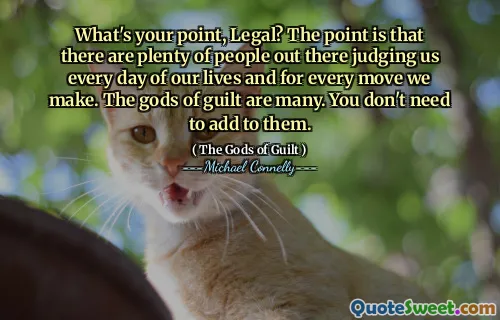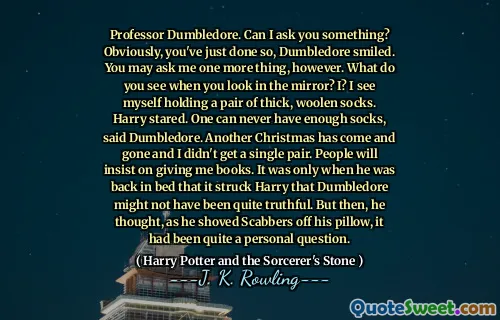
Fulgoni gave me a look that I interpreted as a warning that I was crossing into a territory that he had deemed off-limits when we had last discussed his testimony. I gave him a look back that said too f***ing bad. I have you under oath. I own you.
This excerpt from Michael Connelly's '(The Gods of Guilt)' reveals a tense confrontation where the speaker demonstrates dominance and control in a legal or interrogative setting. The exchange highlights themes of authority, fear, and moral ambiguity within the courtroom or investigative environment. The phrase about owning someone under oath implies a power dynamic, where the oath isn't just a legal formality but a tool for exerting influence and asserting dominance over a subject. The modern, blunt language underlines the narrator's gritty realism and perhaps a sense of frustration or determination not to be cowed by the other's perceived threats or boundaries.
From a psychological perspective, such a dynamic showcases the often volatile nature of courtroom encounters or criminal investigations, where words carry weight beyond their literal meaning. The defiance expressed indicates a refusal to be manipulated or intimidated, emphasizing themes of resilience and assertiveness. It also hints at the moral complexity and personal stakes involved in such high-pressure situations. The language used—abrasive and uncompromising—can evoke empathy for the speaker's position, caught between the harsh realities of law enforcement, morality, and personal integrity.
Ultimately, this quote encapsulates the gritty tension and unyielding attitude that can surface when justice or personal ambitions clash with fear or intimidation. It exemplifies the darker aspects of human interaction in a high-stakes narrative, painting a vivid picture of power struggles within the justice system that are often shadowed in moral gray areas.






